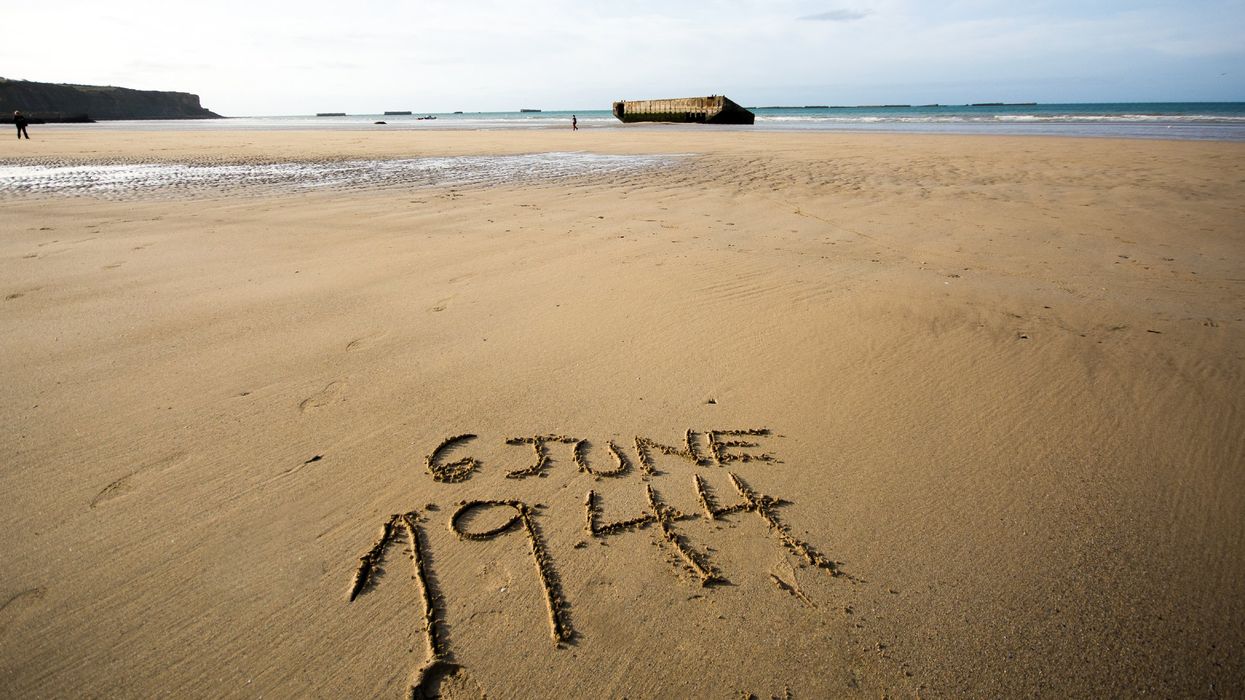June 6 marks D-Day Proclamation Day, a time to solemnly commemorate the historic landings in Normandy, France, on June 6, 1944. On this day, we honor the extraordinary bravery and sacrifices of the Allied forces, whose decisive actions helped liberate Europe and turn the tide of World War II.
D-Day was a pivotal moment in history—the beginning of the Allied effort to reclaim Western Europe from Nazi control. Over 156,000 troops from the United States, Britain, Canada, and other nations stormed the beaches of Normandy in Operation Overlord, an unprecedented amphibious assault that ultimately shaped the course of the war. Though the battle came at a great cost, it remains a lasting symbol of courage, resilience, and the fight for freedom.
In 2019, the 75th anniversary of D-Day was officially recognized with a National Day of Remembrance, reinforcing the enduring significance of this historic operation. More than 80 years later, we continue to reflect on its lessons—particularly the power of strong alliances in confronting threats to democracy.
Echoes of History: Global Challenges Then and Now
As we remember D-Day, we must also recognize its relevance to the present. In 1941, America was still recovering from the Great Depression, and many questioned whether the war in Europe was our fight. Yet as Nazi Germany expanded its reach and Japan launched its infamous attack on Pearl Harbor, public sentiment shifted, and the U.S. entered World War II—a decision that changed the trajectory of history.
Today, historians and analysts draw comparisons between the geopolitical tensions of WWII and Russia’s invasion of Ukraine. Some view Putin’s annexation of Ukrainian territories as an unsettling echo of Hitler’s expansionist moves in Czechoslovakia and Poland, while others warn of the dangers of appeasement. The lesson remains clear: failing to confront aggression early on can lead to larger conflicts with devastating consequences.
The role of the United States is again being scrutinized, just as it was in the years leading up to WWII. While early hesitation characterized U.S. involvement, history proves that American leadership was decisive in securing victory. Many argue that America’s support for Ukraine is similarly vital—both to safeguard European stability and to deter future aggression.
A Reflection on Leadership and Isolationism
Throughout history, political leaders have grappled with the balance between global engagement and national interests. In today’s America, this debate continues as discussions about U.S. involvement in Ukraine remain divisive. While some advocate for increased military and economic support, others echo the isolationist stance that was prevalent before WWII, prioritizing domestic concerns over foreign intervention.
President Donald Trump has frequently expressed frustration with the ongoing conflict, downplaying Ukraine’s sovereignty in favor of reducing U.S. involvement. His insistence that the war must end quickly—regardless of battlefield conditions—has raised concerns among American allies, who fear that such an approach could undermine Ukraine’s long-term security and embolden Russian aggression. Critics liken this stance to pre-WWII isolationism, when some in the U.S. resisted engagement in global conflicts, failing to recognize the growing threats to democracy and freedom.
Honoring D-Day: A Call for Unity and Reflection
The legacy of D-Day extends beyond the battlefield. It is a powerful reminder that democracy prevails when nations stand together. As we commemorate D-Day Proclamation Day, we honor the thousands who gave their lives to defend freedom, recognizing that their sacrifices shaped the world we live in today.
In a time of deep political and social divisions, reflecting on the bravery and unity of those who fought on June 6, 1944, serves as common ground that transcends differences. Observing D-Day is not just about remembering history—it’s about applying its lessons to the challenges we face now.
Let this solemn day remind us that democracy triumphs over tyranny, that alliances matter, and that securing a just future requires vigilance, sacrifice, and unwavering commitment. As we honor those who gave everything for a better world, may we also reaffirm the values they fought to uphold.
David Nevins is co-publisher of The Fulcrum and co-founder and board chairman of the Bridge Alliance Education Fund.


















 A woman prepares to cast her vote on May 4, 2025 in Bucharest, Romania. The first round of voting begins in the re-run of Romania's presidential election after six months since the original ballot was cancelled due to evidence of Russian influence on the outcome. Then far-right candidate Calin Georgescu surged from less than 5% days before the vote to finish first on 23% despite declaring zero campaign spending. He was subsequently banned from standing in the re-rerun, replaced this time round by George Simion who claims to be a natural ally of Donald Trump.Getty Images, Andrei Pungovschi
A woman prepares to cast her vote on May 4, 2025 in Bucharest, Romania. The first round of voting begins in the re-run of Romania's presidential election after six months since the original ballot was cancelled due to evidence of Russian influence on the outcome. Then far-right candidate Calin Georgescu surged from less than 5% days before the vote to finish first on 23% despite declaring zero campaign spending. He was subsequently banned from standing in the re-rerun, replaced this time round by George Simion who claims to be a natural ally of Donald Trump.Getty Images, Andrei Pungovschi

Trump & Hegseth gave Mark Kelly a huge 2028 gift